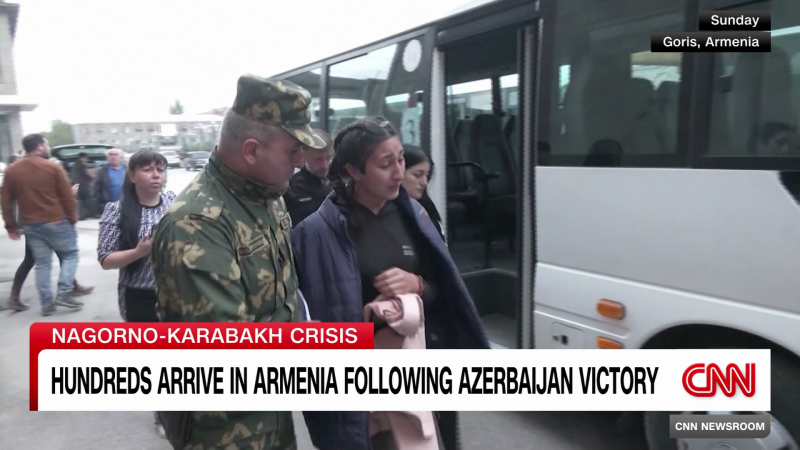
Thousands of ethnic Armenians flee Nagorno-Karabakh after breakaway region’s defeat
The first refugees from Nagorno-Karabakh have arrived in Armenia, days after Azerbaijan launched a lightning offensive and said it had taken back full control of the breakaway region.
Around 4,850 people had arrived in Armenia from Nagorno-Karabakh by midday Monday, according to a statement from the Armenian government quoted by state news outlet Armenpress.
Azerbaijan’s brief but bloody offensive last week killed more than 200 people and injured many more, before Karabakh officials agreed to a Russia-brokered ceasefire in which they agreed to dissolve their armed forces. Azerbaijani President Ilham Aliyev said Baku had restored its sovereignty over the enclave “with an iron fist.”
Azerbaijan has insisted that ethnic Armenians who choose to remain in Nagorno-Karabakh will have to apply for Azerbaijani citizenship.
The Karabakh presidency told Reuters that the majority of the 120,000 ethnic Armenians living in the enclave did not want to live as part of Azerbaijan and that they would leave for Armenia because they feared persecution and ethnic cleansing.
Images shared on social media showed residents of Stepanakert, the region’s capital, packing their belongings into cars and vans, and searching for gas. The region had been blockaded by Azerbaijan-backed activists for nine months, causing chronic shortages of food, medicine and fuel.
Most of those fleeing Karabakh were women, children and the elderly, the deputy mayor of the Armenian town of Goris, Irina Yolyan, told Armenpress Monday. Goris lies close to the border between Armenia and Azerbaijan, near the Lachin corridor – the only road connecting the enclave to Armenia.
The Armenian government said it was providing accommodation to all those who did not have a place to stay, according to Armenpress.
Refugees who reached Armenia told Reuters they believed the history of their breakaway state was finished.
“No one is going back – that’s it,” Anna Agopyan, who reached Goris, a border town in Armenia, told the agency. “The topic of Karabakh is over now for good I think.”
